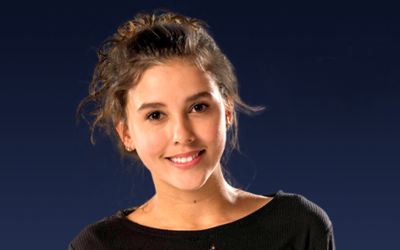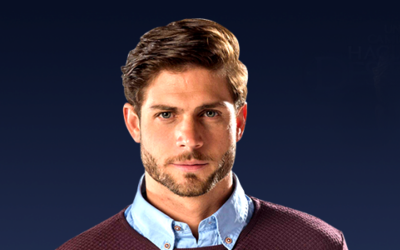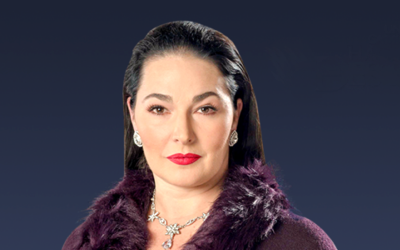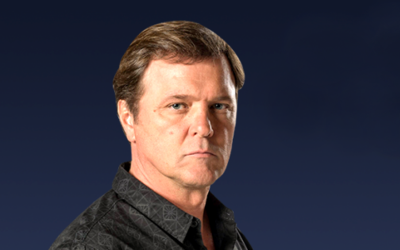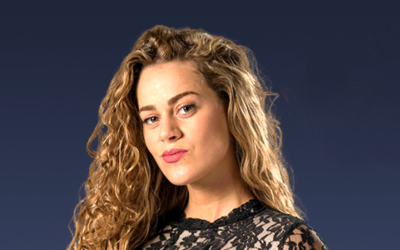I was sitting here, minding my ooples and banoonoos, going over the brief for a client’s project, when I came across the phrase vice white. The context made it unclear if this was a typo or a description of a particular color to be used in the design. My client wasn’t around, so I did what any good citizen would do and Googled it.
It led me to this…
White People Talk About Their White Privilege
I sighed because my brain, always itching for something to think about, should have taken a left turn at Albuquerque and instead, took a right turn at ooh, I wonder what this is. So I clicked on it.
Now this is happening.
Welcome to Let’s Play Smart where we ban together to take on society’s greatest debates! The rules are simple. Instead of weighing you down with stuffy, academic posts on subjects we’re all probably sick of hearing about, I’m going to tackle them with basic parallels and phrasing even a rock could understand and you win by not acting like you’re too fucking stupid to get it!
As the title of this post suggests, today’s game is about deconstructing white privilege. Many have tried and after reading the comments on that Vice blog, I see that many have failed. Not us, though! We’re going to work it out because we’re winners, winners, chicken dinners!
We’ll start with three teams:
The first team is for people who think white privilege doesn’t exist, the second is for people who think it does, and the third is for people who are on the fence about it or otherwise willing to give it more thought.
You know how game shows often have a challenge that eliminates one team right out of the gate? This was that challenge. The first team can leave because you’re already wrong!
I’m kidding.
Not about you being wrong. About you needing to leave. You, in particular, need to stay.
What is white privilege?
To answer this oft-inflammatory question, we’ll simplify it. What is privilege in general? Forget dictionaries, friends. They’re myopic and tell you how to pronounce things. Yes. Dictionaries are that guy. So let’s ask a thesaurus!

Pretty intimidating, right?
Of course not. They’re words. Words you all know and understand.
Advantage is arguably the most common interpretation, but it’d be fruitless to assign privilege that identity across the board when it dons a variety of meanings and manifests itself in a number of ways.
Privilege is what we lean on rather than fight against. It’s dynamic. Fluid and limitless. And what exists as a privilege today may not be one tomorrow.
In one aspect or another, we’re all privileged – as individuals and as groups – and every privilege, great or small, makes our lives better in unspoken, unrecognized ways that sometimes add up to a remarkable existence and sometimes don’t.
Because privilege guarantees itself.
Not the outcome.
Challenge #1:
Whoever you are, whatever you are, think of five privileges you have that aren’t tied to your race. Consider the implications of the synonyms I put before you in the image above and paint with broad strokes. This should be as easy as making a grocery list except the items on it are food for thought.
If you’re feeling strained, try flipping the question on its head and ask yourself what you’re thankful for, because everything you’re thankful for is a privilege. Everything you benefit from is something someone else on this planet may not have.
I can give you a list right now: I have friends. I have two hands. I can swim. I’m literate. I like vanilla ice cream – and yes. I just said liking vanilla ice cream is a privilege. It’s abundant, which means I have the luxury of desiring something readily available to me. That luxury makes satiating my desire easier and ease is a privilege.
That’s me challenging your understanding of the shape privilege can take.
When putting a puzzle together, you start with the big picture because it gives you insight into what the individual pieces add up to. If you can’t expand your definition of privilege to appreciate the fullness of how it affects our everyday experiences, you won’t make sense of the picture our society has painted, even as it comes into view.
To say that white privilege doesn’t exist is to say that in a world of infinite privilege in infinite forms, being white was somehow excluded – and that’s dumb.
So the question isn’t if white privilege exists. The question is why it matters and why so many whites are socially conscious and self-aware about the notion of privilege except when applied to their race? That’s where the deconstruction really starts.
Congratulations! You made it to the next round!
What does white privilege mean?
We’ve briefly touched on what privilege is and what it can be for all of us, but what something is ain’t what it means. How does privilege manifest itself in our reality? How does it apply to our everyday life? How does it shape who we are?
What does it actually do?
Many users commenting on the Vice blog understood the answer to that question, citing examples of what being white has meant for them:
Unnamed: I feel like so much of my career has been about people taking chances on me, putting faith in me, etc. I have had basically four different careers—all really interesting and challenging—and I’ve gotten the chance to transition to each and show what I can do, based on people giving me those opportunities. I’m not blind to the fact that for many non-white people, getting a big break ‘on faith’ is essentially unheard of.
Andrew Litchfield: I’m a white male nurse. I work with many excellent African nurses, some who have more experience than me. I know that I’ll never be turned away by a patient asking for another nurse because I’m white. It happens to black nurses at least once a month.
Corey Reynolds: I’m a white male and I’ve had an employer tell me with a straight face “we don’t hire guys with beards or black people” in 2013. I had to shave. Black people can’t shed their skin.
Joey Gizzarelli: The effects are subtle. But it means that on meeting me, I’m assumed to be more intelligent and more trustworthy. To have had a better education, to have lived in a better area. I’m assumed to have better connections and resources, and therefore seen as more valuable. My mistakes and hardships are more likely to be attributed to chance and misfortune than to my abilities or character.
Iikka Keränen: As a pale-skinned immigrant from Europe [living in America], I have never been given trouble (or made fun of) for having an accent. I have never been accused of stealing people’s jobs or coming here to leech off the system. I have never been told to “go back to” wherever. People are interested and eager to hear about my ethnic/cultural background and don’t automatically assume it’s somehow inferior. People don’t run for the President of the United States on a platform of marginalizing me.
Beth Allen: My 10 year old son looks looks like the typical blond haired blue eyed boy – his best friend since kindergarten J is black. Our house is a second home to J – and our families are very supportive of each other. I observe how the bodega owner clocks J and doesn’t even watch my son (who is frankly much more likely to filch a candy bar). When I was growing up – almost exclusively black men (and women) in movies and TV had negative roles – the criminal, the druggie or the bum. I knew this on a conscious level and felt it was wrong. But when your perspective is parental, wrong hardly covers it. I worry about the impact of racism on J often – what is 18 years of extra scrutiny doing to his self esteem, self image. How is he being shaped by seeing his reflection in the media and films as largely negative – second class?
Zachary Stein: When me and a group of my friends are walking down the street at night, drunkenly screaming and laughing and staggering around, we NEVER even stop and worry about a police officer accosting us. Meanwhile, a group of black people engaging in the same behavior are going to get stopped because the police are worried about them “wiling out”. This flagrant disparity in treatment shapes whole swaths of society’s behavior unbeknownst to most.
Meanwhile, other users entirely missed the point:
Charles Lyons: More anti-White agitprop to prey upon White guilt.
There are a number of reasons for that disconnect. Most boil down to a lack of understanding the phrase white privilege and its intent.
The rest are symptomatic of a degree of racism that renders one incapable of recognizing the term in earnest and I’ll talk about how to spot the difference between the two later. For now, deciphering what white privilege means begins with declaring what it doesn’t…
- White privilege doesn’t mean white people don’t experience hardship.
- White privilege doesn’t mean white people don’t experience discrimination.
- White privilege doesn’t mean white people owe all of their accomplishments to being white.
Like the Wise Men of old, these three things come bearing gifts in celebration of your birth into the world of racial intelligence. Said gifts are wisdom, knowledge, and a potato.
Someone playing dumb would struggle with that list, fumbling about like a child pouring juice into a cup it has no business drinking out of in the first place because really, it was made for adults and smaller ones exist. Lucky for us, we’re playing smart!
Challenge #2:
Read the following comments from the Vice blog and match them to a point in the bulleted list that the quoted user clearly doesn’t grasp. Extra gold stars if you can match a comment to more than one!
Erik Shepner: This message that we (white people) are continually being bombarded with usually implies we owe it to others in society to degrade ourselves, that our accomplishments as people are null and void, and that we should live our lives in shame and guilt.
Craig Zacarelli: Back in the 1980s i got turned down for a job because I had a mohawk, it wasnt even one of those huge obnoxious ones. But the boss told my friend who worked there and tried to get me the job that i “looked like a punk rocker”. He was white, I was white. I also got fired from my fair share of jobs too. I never had anything handed to me just for being white, and i have never been able to take advantage of a situation because i was white.
Amy Turner: If “advantages” go to white people, I guess I must be black and color blind then! I lived in the ghetto til I was 21. I was one out of three white kids in a school that was all black and I WORKED MY BUTT OFF to move my kids out of the violent neighborhood I was living in. Was never “PICKED” before anyone else and all my superiors were black.
Andrew Roesch: Honestly I’d rather burn off my fucking skin than read one more thing about white privilege. I’d like to claim that it is an insult to anyone, white or else, that worked hard to achieve their goals.
Dylan Silver: So my question is if I have so called white privilege why as a senior in highschool were me and my bestfriend pulled over for being out “too early to not be ditching” Which we weren’t as seniors we got out at noon and this happened around 1 pm, then as I complied with the officers request for my id why did I get my face bounced off the dashboard of the car, put in cuffs and beaten at gunpoint for making an aggresive motion? I was in my seatbelt still and Complying with his orders…
Alex Brown: Nothing pisses me off like seeing someone say they got a job because of “white privilege”. The implication being, of course, that every unemployed white person must have just been particularly stupid.
Vi King: im so tired of hearing about this myth of white privilege. im white and it doesnt help me in my daily life at all. i went to college and still dont have a “good job”. i dont get tax breaks for being white. i dont get to ride in the front of the bus or go to the front of the line at the grocery store. in fact, being tall i always get asked by short people, mostly women, to help them get some item off the shelf or help them carry their heavy item to their basket.
What?
Since there were also comments suggesting that the concept of white privilege is somehow a personal attack, I’d be remiss not to mention that the term white privilege isn’t a criticism of white people. It’s an allusion to how white people are perceived and subsequently treated by their environment.
It’s the difference between the statement hot dogs sell well versus hot dogs are delicious. The former relates to the way the external world acts upon hot dogs while the latter would be a comment on the hot dogs themselves.
The phrase white privilege reflects a very basic observation: In America – and arguably many places across the globe suffering from the same historical influence – you’re considered better if you’re white.
So what does it matter in practice?
Better than what and how?
We’ll explore that in the next part of the game and face new challenges. Are you up to the task? Are you human enough to handle it?! CAN YOU STILL PLAY SMART?!?!?!?!
Let’s find out!


